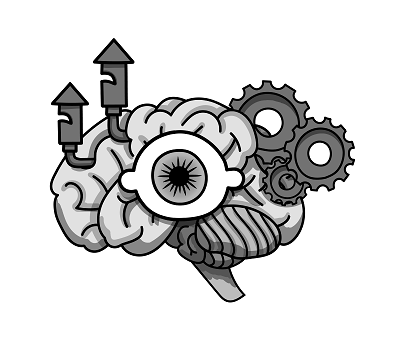I think this is the best place to post this, but I was going through my saved posts before deleting my Reddit account and thought that a lot of writers on Lemmy/Fediverse might be able to enjoy this one.
There’s some great tips in these comments but this archive snapshot will make sure that information isn’t lost.
Feel free to add your own tips here in the Fediverse as well!

Heh, I feel a little qualified to provide some thoughts here. I have ADHD, and technically just barely kind of qualify as ‘pro’ (three whole Patreon patrons!), but I do have over 200k words published with almost 900 followers, so there is that. And this is what has worked for me, it won’t work for everyone.
-
Figure out if you are a planner or panster. If the task of creating an outline means that you will probably never get around to writing, then you are best off being a panster.
-
If you are a panster, you probably want character-driven stories. Sure, you can have conflict and antagonists, but your characters are going to be acting and doing interesting things based on their personalities and desires. Plot happens to help drive character development, so don’t try and make the plot anything too complicated, it’s just a tool of your real story.
-
Write the story you want to tell. Create a few characters that you like in a setting/scenario that you find interesting. These should be people you want to get to know, and a situation at least moderately interesting to see how they cope with. High-stakes drama is not required (and may not be desirable).
-
Let yourself daydream about the story when doing the things that make your mind wander anyway, such as washing dishes or other chores. And if you daydream to go to sleep, do it then too. Keeps ideas churning about future developments.
-
Figure out how much (or how little) extra stimulation you need. This may vary. I often but not always enjoy having a music selection playing (Heavy on the Final Fantasy OSTs), and I have a civ game running that I can take breaks with for a turn of play and then back to writing (it’s not hard to set up a modded game where it takes an hour to process a turn once you have enough cities)
-
Have more than one story to tell in the same world. This way every bit of world-building you do for any story helps all of them, and you can switch to writing a different story when your brain fizzes out on the primary story.
I’ll add more thoughts later as they come to me.

An expansion on 6: Each of my stories (I have three serial-type stories, though I am only currently publishing one of them) is on a separate continent, and with an undefined temporal relationship. I am not getting any of these groups involved in world-spanning plots, so I don’t have to define where they are in time relative to each other.
This makes things a lot cleaner, I don’t have to worry about discrepancies or conflicting narratives.
These are great notes, thank you for sharing and expanding on them!

Glad to help, and I have another.
When my brain gets a certain level of fuzz when I try to concentrate, I go take a quick nap. Sometimes it’s longer than ‘quick’, but that means I really needed sleep. But much of the time, I really do just need that brief bit of rest and reset to let my brain chill.
Alternatively, I’ll go take a shower, or deliberately take a break from writing to take care of a household chore. Just, do something to break things up.

To expand a bit on point 1 - you won’t truly know what you are until you try. I wanted desperately to be a pantser, wrote a terrible novel, and hated every moment of it. Then I tried planning and I’m having a much better time.
-

Thanks for posting this!
My 2 cents is that as you get more used to ADHD symptoms, you can learn to ride the waves a little bit. The intensity of your interests can be powerful, and you’ll find ways to partly channel it. A few tips:
- Practice being kind to yourself. Accept that you’ll get derailed, and learn to get back into it.
- Get used to your patterns. It takes ~20 minutes to get into a task and ~2 minutes to lose focus (less for us, lol), so remember that there is always a 20-minute wall of effort every time you need to get going. That’s the barrier you’ll get better at pushing through as you practice.
- Build your environment to suit: get rid of clutter (if that bothers you), close doors or wear noise-cancelling headphones if you need quiet (I’ll always love rainymood), you close other apps, leave your phone far away, and turn on self control.
- Consider multiple media. When I’m stuck it can help to switch from typing to writing, diagramming, or going for a walk and talking aloud, using speech-to-text on my phone.
Note: I’m a content writer rather than a fiction writer, but there are a lot of overlaps (research, ideation, drafting, revision…). I was diagnosed with ADHD in college ~12 years ago, was on meds for 8, and have been off them for the last 4, which is also roughly the period in which I’ve built a freelance career. My relationship to ADHD has changed dramatically over that time, per the above.
These are some fantastic notes as well, thanks for contributing!


